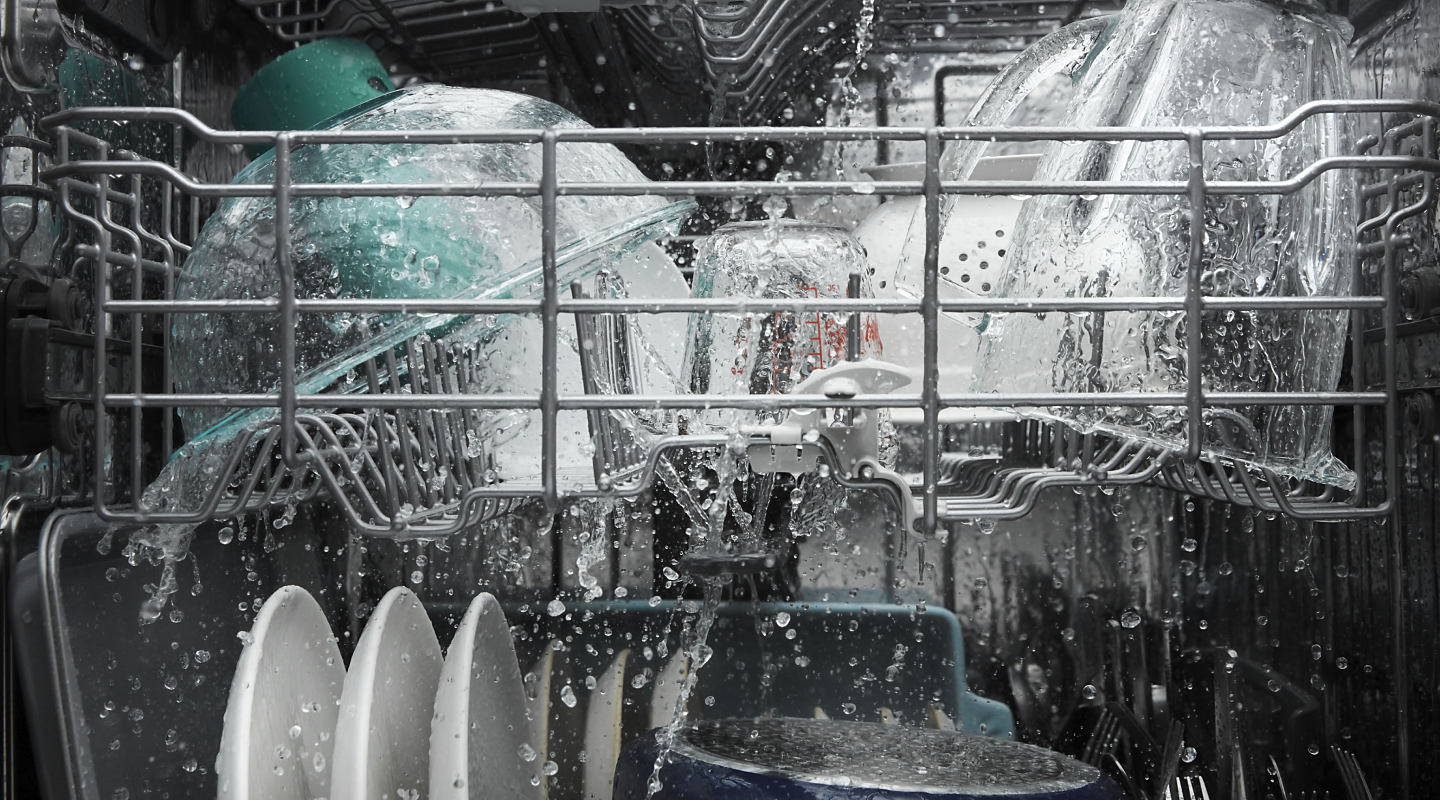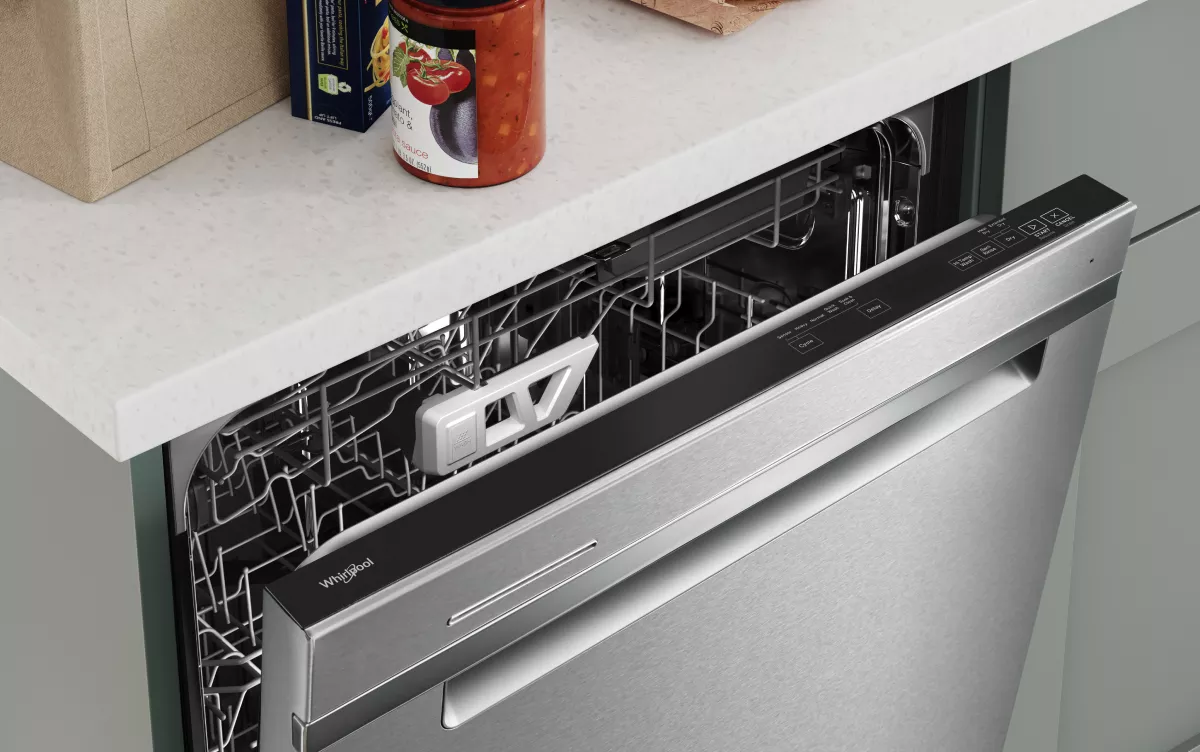This article is your complete guide to knowing exactly how much water does a dishwasher use? On average, modern dishwashers utilize between 3 to 4.5 gallons (11.3 to 17 liters) of water per cycle but what does this mean for your energy bill? Whether you’re curious about conserving water or making a green energy decision, we will cover it all.
Here at The Energy Professor, we want to give you the information you need to not only save money on your energy bill, but to also become more energy efficient. We hope find this post helpful! And makes it easier for you to know more about dishwasher water usage. Be sure to also check out our one-of-a-kind energy savings calculator!
The Energy Professor Electricity Rate Check Tool
How Much Water Does a Dishwasher Use?
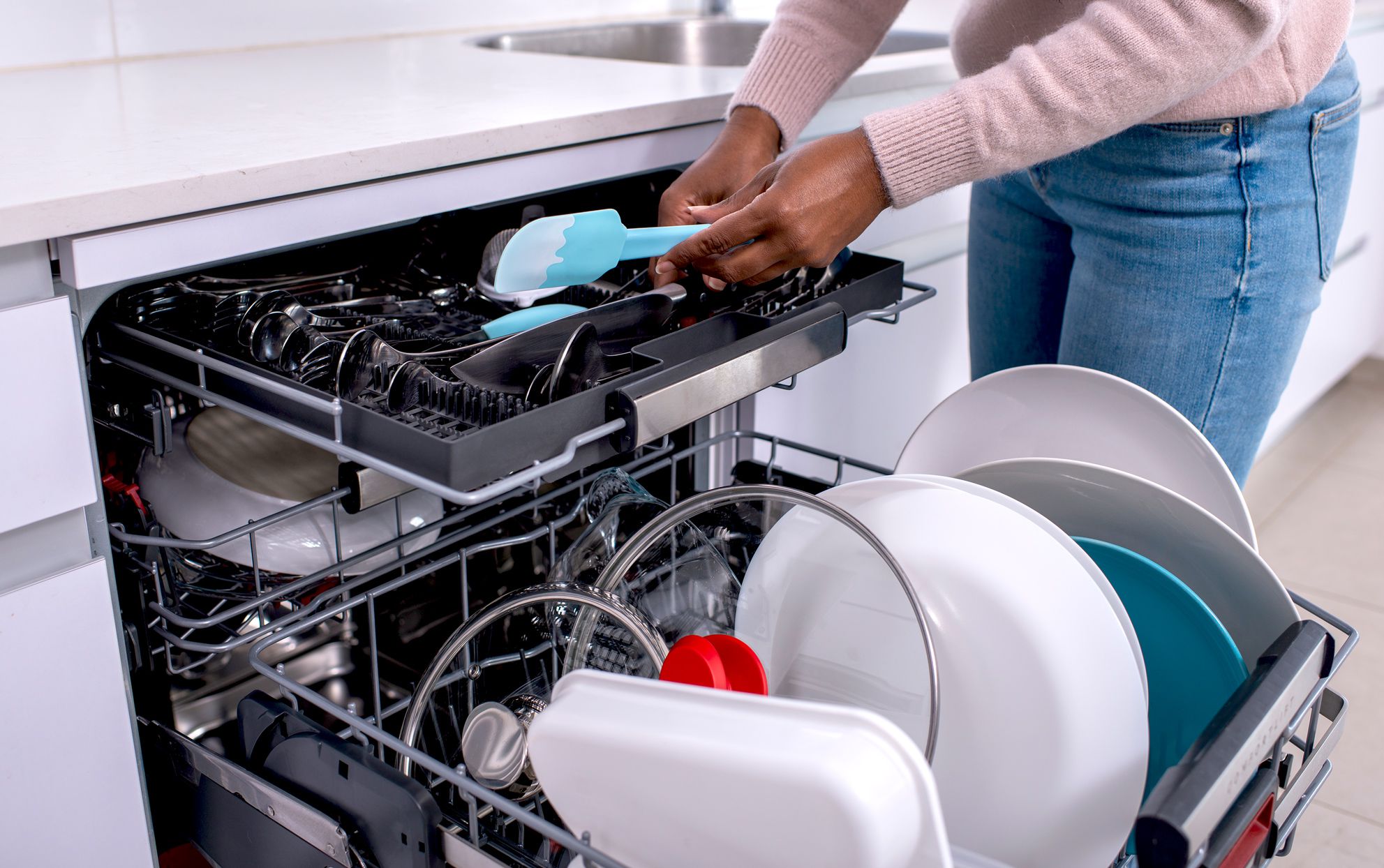
For the environmentally-conscious homeowner, understanding the water consumption of household appliances like dishwashers is key. On average, modern dishwashers utilize between 3 to 4.5 gallons (11.3 to 17 liters) of water per cycle. This figure can vary based on the specific model and chosen cycle. We will get more into that later. A common question we receive is: do dishwashers save water? Surprisingly, compared to hand washing dishwashers can be a more water-efficient choice. If you leave your tap running while hand washing dishes, you can use up to 27 gallons! Modern dishwashers not only offer convenience but also an eco-friendly approach to dish cleaning, aligning well with our green energy goals. It’s important to stay informed and make water-saving choices with your appliances!
What uses less Water: Dishwasher or by Hand?
- Surprisingly, hand-washing dishes can consume a lot more water than your dishwasher. Especially if you leave the tap running. In fact, you could end up using almost 27 gallons for one load of dishes! In this light, dishwashers, especially modern ones, and Energy Star washers are significantly more water-efficient.
If you are going to wash dishes by hand, the hands can be a water-efficient dishwasher too! But there are a few water-saving pointers we can give you to reduce the amount of water you use. The best practice for washing dishes by hand is to fill the sink. If you aren’t in the market for a dishwasher, consider purchasing a double-sided sink. This way you can fill one side with hot water and one side with cool water. The hot side is for soaking and washing while the cold side is for rinsing. By filling the sink, you’re only using the water in the sink and not water running from the tap.
Related Post: How to Conserve More Water
How Much Water Does a Typical Dishwasher Cycle Use?
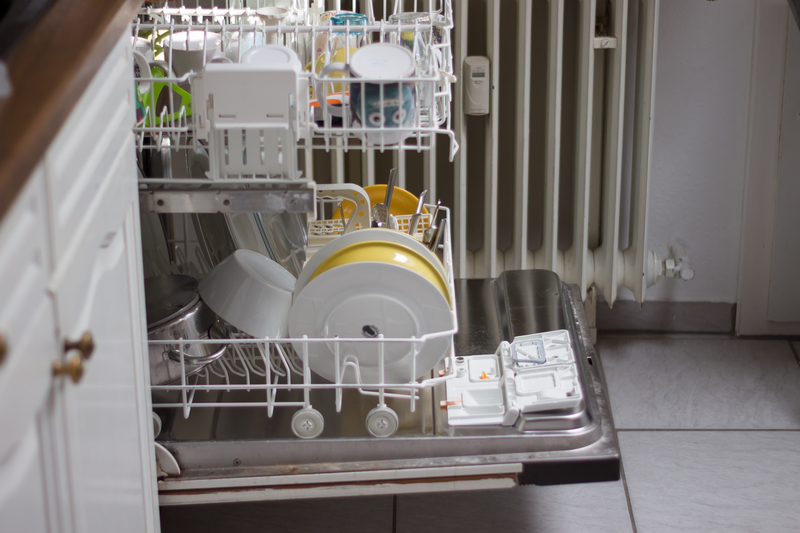
When homeowners ponder the question “How many gallons does a dishwasher use?”, the figures can be enlightening. A typical cycle in modern dishwashers uses between 3 to 4.5 gallons (11.3 to 17 liters) of water. While older dishwashers used significantly more water, technological advancements have substantially reduced the dishwasher gallons per load in newer models. This shift towards efficiency resonates with the eco-conscious homeowner, emphasizing the importance of understanding and reducing our consumption. When choosing a dishwasher, it’s beneficial to consider not only its cleaning prowess but also its water usage per cycle. It’s also important how much electricity your dishwasher uses per cycle. Knowing this and when to run it can help save on your overall monthly bill!
How many Gallons of Water does a Dishwasher use?
- 3 – 4.5 gallons (11.3 to 17 liters) of water
A modern dishwasher has an average dishwasher water usage between 3 to 4.5 gallons (11.3 to 17 liters) of water per cycle. However, this can vary based on the specific model, the chosen wash cycle, and the age of the machine. Older dishwashers might consume more, sometimes up to 10 gallons per cycle, while newer, energy-efficient models tend to use less. The selected wash cycle, whether it’s “eco” or “heavy duty”, can also impact the total water usage. It’s always a good idea to refer to the user manual of your specific model for precise water consumption details.
Related Post: How much Electricity does a Dishwasher Use?
How to Wash Dishes More Efficiently
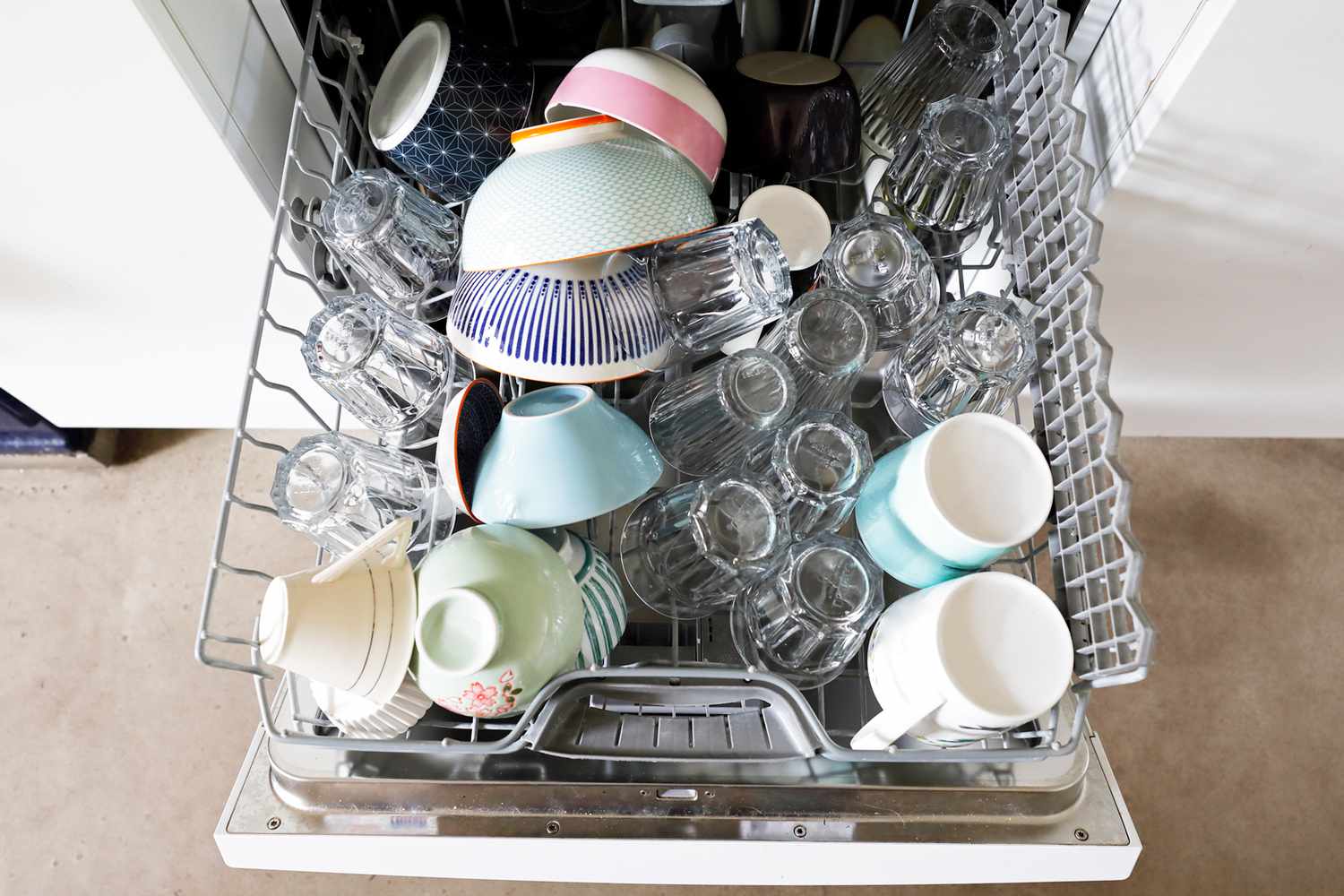
Optimizing the way we use our dishwashers can lead to significant water and energy savings. Modern dishwashers are designed with efficiency in mind, but having a grasp on how much water usage dishwashers use can equip homeowners with the knowledge to operate them more judiciously. Factors such as the selected wash cycle, the dishwasher’s age, and load size can all influence water consumption. By being cognizant of these details and making minor adjustments, we can maximize cleaning performance, minimize wastage, and ensure that we’re not only taking care of our dishes but also our planet.
How to Check how much Water my Dishwasher is Using?
- Consult the User Manual: This document should provide specifics on water consumption for different wash cycles. Manufacturers often list average water usage for standard, eco, and heavy-duty cycles.
- Inspect the EnergyGuide Label: Newer dishwasher models usually come with this label that provides estimated annual water and energy use. By dividing the annual water use by the average number of loads you run in a year, you can determine the approximate water consumption per cycle.
- Monitor Your Water Bill: If you notice a spike in water consumption, it might be related to your dishwasher or other household appliances. Consistent monitoring can give you an idea of your overall water consumption pattern.
- Consider a Water Meter: For a more precise measurement, installing a water meter for your dishwasher can provide exact usage data.
By being proactive and understanding your dishwasher’s water consumption, you can optimize its use, ensuring dishes are cleaned efficiently while preserving our precious water resources.
Related Post: How to Increase Your Water Heater Efficiency
Dishwasher Water Usage by Brand
The world of dishwashers offers a myriad of choices, each brand boasting its unique features and efficiencies. While all modern dishwashers tend to be more water-conservative than their older counterparts, there are distinct variations in water consumption among brands. For instance:
- Bosch: Known for its high-end appliances, the Bosch dishwasher water usage is commendable. Many of their models are designed with cutting-edge technology that emphasizes both cleaning efficiency and water conservation. Some Bosch models even fall under the category of the best water-saving dishwasher on the market.
- Whirlpool: A household name in appliances, Whirlpool dishwasher water usage is also geared towards efficiency. Their adaptive wash technology adjusts the water amount based on the load, ensuring optimal cleaning with minimal waste.
- Best Water-Saving Dishwasher: If you’re on the hunt for the most eco-friendly option, you’ll find several contenders vying for the title of the best water-saving dishwasher. While Bosch offers strong competition, other brands like Samsung, LG, and Miele have models that boast impressive water-saving features as well.
Factors Impacting Water Usage
- Technology & Innovation: Pioneering brands invest in creating technologies that optimize cleaning power while curtailing water usage.
- Wash Cycles: Brands vary in the wash cycles they offer. Each cycle, from ‘eco’ to ‘intensive’, can have different water consumption rates.
- Load Sensing: Modern dishwashers often come with sensors to adjust water levels based on load size, ensuring efficient use for every wash.
- Age & Model: Water efficiency often improves over time. Newer models within the same brand might consume less water than older ones.
- Size & Capacity: Compact dishwashers generally use less water in total, but the per-dish consumption might be higher when compared to standard-sized models.
Making an informed decision about which dishwasher to invest in can be guided by understanding these factors and the water consumption patterns of different brands. This knowledge equips homeowners to strike the right balance between cleaning efficacy and eco-friendliness.
Related Post: Never Overpay for Electricity Again!
How much Water does a Dishwasher Use FAQ

Q: How much water does a 1-hour dishwasher cycle use?
A: A 1-hour dishwasher cycle typically uses between 3 to 5 gallons (11.3 to 18.9 liters) of water, though this can vary based on the specific model and brand.
Q: How many Gallons of Water does a Dishwasher use Per Load?
A: The average dishwasher water use per load is between 3 to 4.5 gallons (11.3 to 17 liters). However, this figure can fluctuate based on the specific model, the chosen wash cycle, and the age of the unit. Older models might have a higher water consumption, whereas newer, energy-efficient models tend to be more conservative. Factors like the selected wash cycle, be it “eco” or “heavy-duty,” also play a role in determining the exact water usage. It’s beneficial for homeowners to be aware of these variances in dishwasher water use, ensuring they align with sustainable practices and are making the most out of their appliances.
Q: Is it cheaper to have a water meter?
A: Whether it’s cheaper to have a water meter largely depends on household water consumption. For households with low water usage compared to the fixed rate charged, having a water meter can be cheaper. However, for homes using a lot of water, metered bills might be higher.
Do you Need Cheaper Electricity?
If you’ve taken the time to understand the information on your bill and discovered you’re paying more than you’d like for your electricity, have you looked around for a cheaper deal? The Energy Professor has a wealth of information on ways to save on your utilities, including details of top deals that could significantly reduce your monthly or quarterly electricity bills.
We hope you found this article helpful! If you are looking for ways to increase energy efficiency and sustainability in your home be sure to take a look at all of the latest renewable energy options in your area. The Energy Professor helps residential and small business owners find qualified energy suppliers in New York, New Jersey, Pennsylvania, Texas, Ohio, Maryland, Illinois, and Massachusetts.

